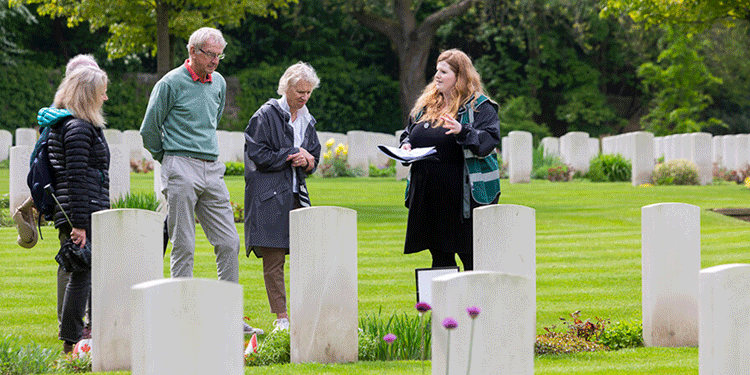
At the end of December, three weeks before his own January death, Major A. J. Greathed had the unfortunate task of informing the wife of a fellow Canadian civil affairs officer under his command, that her husband Cyril Nisbet “Pete” Tingle had been killed while on duty along the Belgian-Dutch border. It was a devastating end to a war that the 33-year-old father of two and dedicated husband entered with the most patriotic intentions.
His application to the RCAF recruiting centre in Edmonton, Alberta summarized his motivation, “I have felt with growing force the vital necessity of every Canadian, devoting every ounce of energy to the winning of the war.” Knowing he was too old to fly, he believed his international experience and economics and law degrees from the London School of Economics and University of Alberta respectively, benefited the RCAF, which had, he believed, “the most administrative opportunities.” Reference letters included in his personnel file characterised Tingle “as above reproach in every particular, honest, dependable,” it was noted "he owned his own home, had administered a large unit during the Victory Loan campaign and his personality trait testing scored the highest in mental alertness, self-confidence, initiative, leadership, accuracy and reliability, energy and persistence, and co-operation.” The stellar letters of reference meant a successful appointment to the Civil Affairs staff course in Wimbledon for 8 weeks in May 1944, and employment as a legal officer in XII British Corps, attached in November 1944 to 202 CA detachment in Elst, Netherlands.
The war diaries evidence that Tingle was part of the spearhead civil affairs detachment that entered the town of Dongen, Netherlands in the aftermath of the Canadian battles to clear the Scheldt estuary.
He spent much of November 1944 uncovering German food stocks, as well as furniture and materials, and figuring out how to translate these findings into a solution for Dutch food and fuel shortages. In November they worked mostly on Belgian problems, (including the evacuation and housing of Dutch refugees), and for Tingle that meant spending long periods of time in the town of Maesyck, Belgium, where he was ordered to drive to Brussels with other officers in order to obtain ration books for their assigned community.
In the rush to head to Brussels to assist with the food situation, the driver of the civilian Ford V-8 saloon vehicle with Tingle in the front passenger seat, did not see the stalled American 6x6 truck protruding 3 feet off the verge prior to hitting it, the force ejecting Tingle from his seat and onto the pavement where several Belgian soldiers witnessed the accident and rendered assistance.
The officer leading his civil affairs detachment wrote to Tingle’s wife as a fellow Canadian, “As a Canadian, I can imagine the terrible shock the news of his death must have been to you…. Whatever he did, he did wholeheartedly and sincerely and cheerfully and he never thought of himself.”
His commanding officer spoke of the administrative strengths that Tingle so desperately hoped would make him a useful part of the Canadian war effort, “we were looking forward to working in Germany together, where he would have been of the greatest value. The notes and studies he made showed his great keenness and I have passed them on so that his work has not been lost.”
Squadron-Leader Tingle’s funeral was held 29 November 1944, surrounded by his shocked and saddened 202 detachment, and his death memorialised in the local Lethbridge Herald newspaper in Alberta not long after.

